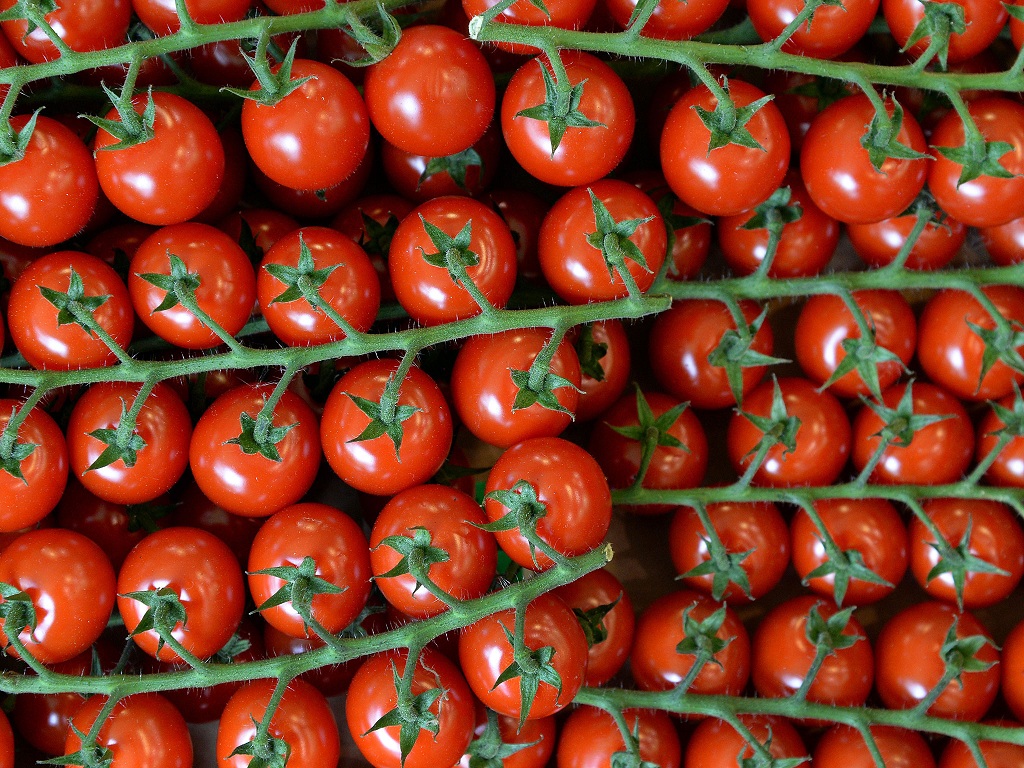Russian consumers may soon be serving Turkish tomatoes at their tables once again, as Moscow revealed it is planning to resume tomato imports from Turkey beginning December 1.
Four export companies in Turkey will be allowed to export to 144 million market of Russia from December 1, 2017, meant to be the anticipated resumption of tomato supplies which have been repudiated by the Russian government since January 1, 2016.
"The decision is basically made, regulatory and legal support is being prepared, so that from December 1, four enterprises [will be allowed to export] 50 thousand tons of tomatoes,” said Russia’s Energy Minister and Chairman of the Russian-Turkish Intergovernmental Committee Alexander Novak on October 18, according to Interfax news agency.
"We need to make changes to the legal framework for this, we are discussing these issues with the Turkish partners, sanitary services are being developed, [and] we will discuss this issue on Saturday,” Novak added. A meeting of the Russian-Turkish Intergovernmental Committee will be held on October 21 in Kazan, located 716 kilometers (445 mi) east of Moscow.
Russia closed its market to fruit and vegetable deliveries from Turkey on January 1, 2016, when bilateral ties spiraled downward following the downing of a Russian Su-24 bomber by the Turkish armed forces in November 2015. Turkey claims the Russian plane, which was part of its military campaign in Syria, violated Turkish airspace.
Moscow retaliated with embargoes on Turkish food imports, business dealings and tourism-related services.
Most of the embargoes were phased out, thanks to diplomatic rapprochement between Ankara and Moscow at the highest levels. Just this year alone, Russia’s President Vladimir Putin and Turkey’s President Recep Tayyip Erdogan met in March, May, and September.
However, restrictions on the supply of tomatoes remained in force. Moscow claimed keeping the tomato embargo in place was in the best interests of Russian farmers, who have taken out large government loans to consolidate local production and fill the void in the market that was created after the halting of Turkish imports.
"We believe that in order to develop trade and economic cooperation, we must remove all trade barriers,” Novak said.
Arkady Dvorkovich, Russia’s Deputy Prime Minister, said on October 17 that easing the tomato embargo and allowing Turkish imports to resume will help meet Russia’s off-season local production shortage between the months of December and April of next year. Severe winters in Russia normally mean high-priced domestically grown tomatoes for consumers, which cost more than imported varieties.
Prior to restrictions, Turkey had been the largest supplier of tomatoes to Russia and accounted for 53 percent of Russia’s imports, or about 360,000 tons per year.
Turkey ranks number eight in the list of Russia’s foreign trade partners, and accounts for 3.4 percent of Russian foreign trade. Total bilateral trade dropped in 2016 by 32 percent, to $15.8 billion, compared to just one year earlier.
Overall trade has rebounded by 31.5 percent so far this year with the lifting of most of the embargoes. Turkish agricultural exports to Russia shot up by 58.7 percent in the first half of 2017.







 The number of evacuees from flooded areas in Kazakhstan has reached 97,852 people, including about 32,856 children since March 27.
The number of evacuees from flooded areas in Kazakhstan has reached 97,852 people, including about 32,856 children since March 27.
 The Islamic holy month of fasting, Ramadan comes to an end this week with the celebration of a joyous festival called Eid (meaning “festival” in Ar...
The Islamic holy month of fasting, Ramadan comes to an end this week with the celebration of a joyous festival called Eid (meaning “festival” in Ar...
 Iran's senior military leaders described the drone and missile attack on Israel on April 14 night as “successful".
Iran's senior military leaders described the drone and missile attack on Israel on April 14 night as “successful".
 Iranian President Ebrahim Raisi warned Israel that it would face a "real and extensive" response if it makes any "mistake" following Tehran’s missi...
Iranian President Ebrahim Raisi warned Israel that it would face a "real and extensive" response if it makes any "mistake" following Tehran’s missi...



